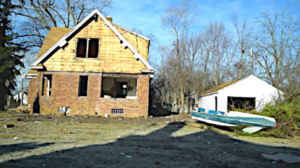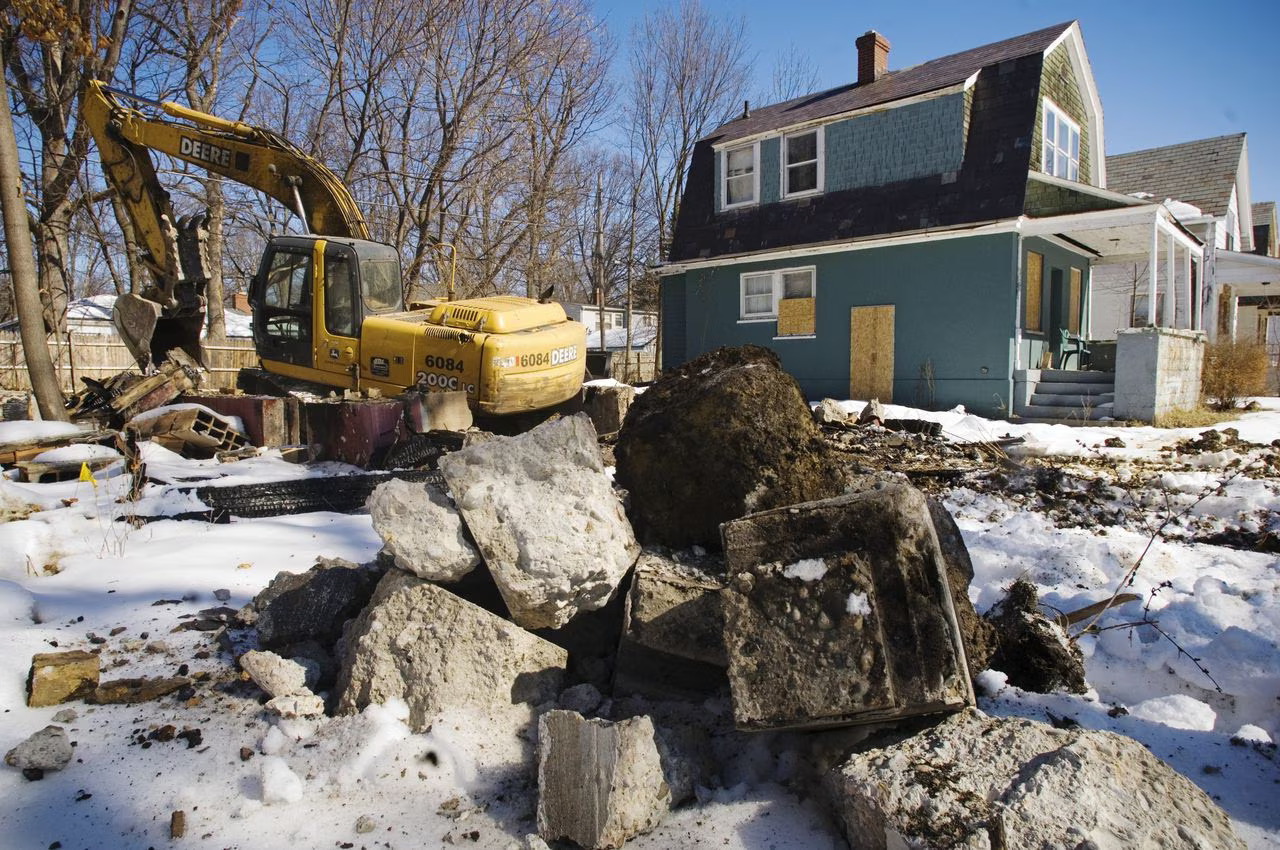 The first of more than 2,000 homes and businesses targeted for demolition by the Genesee County Land Bank will start to come down by mid-April, marking the start of a massive tear-down plan fueled by more than $43 million in grants and American Rescue Plan Act funds.
The first of more than 2,000 homes and businesses targeted for demolition by the Genesee County Land Bank will start to come down by mid-April, marking the start of a massive tear-down plan fueled by more than $43 million in grants and American Rescue Plan Act funds.
Michael Freeman, executive director of the Land Bank, told the City Council on Monday, Feb. 13, that the first properties to be razed through the program will likely be in the city’s 1st and 2nd wards on Flint’s north side and said nearly 700 structures could be leveled in the program’s first fiscal year.
“We can have houses coming down in April and then it won’t stop for the next four years,” Freeman said during a presentation to the council. “It should be a consistent flow.”
Land Bank plans call for nearly 700 structures to be town down in the first year of the program, more than 600 in 2024, nearly 500 in 2025 and roughly 100 in 2026, the last year that ARPA funds can be spent.
Final numbers depend on how much more money can be secured for the program and how costly demolitions end up being for the Land Bank, which is coordinating the project.
Land Bank officials have built their budget on projections that the average cost of a residential demolition will be $16,000 and $35,000 for small commercial structures that have also been targeted.
Although the Land Bank owns more than 10,000 parcels of land in Flint, most of those are lots without structures, Land Bank officials have said. After spending on the new demolition program, roughly 90% of Land Bank properties that have been identified as dangerous or which are adjacent to other occupied buildings or schools are expected to have been torn down.
The agency ends up as the owner of the properties through the tax foreclosure process.
Freeman said that Land Bank officials have already performed more than 2,000 property inspections, hundreds of required environmental surveys and are making arrangements for utility cutoffs and environmental remediation such as asbestos removal where demolition is planned.
He asked council members for their support in managing expectations for the program because the work will be done over several years and everyone living next to a boarded or burned building wants their area to be the first addressed.
 4th Ward Councilwoman Judy Priestley said she was disappointed that efforts won’t focus initially on the city’s east side.
4th Ward Councilwoman Judy Priestley said she was disappointed that efforts won’t focus initially on the city’s east side.
Priestley has been outspoken about addressing blight in the 4th Ward — both properties held by the Land Bank as well as private owners.
“The 4th Ward always seems to have gotten screwed in where money is being spent and it’s got to stop and I’m hoping to make that stop,” she said.
This story was first published by MLive/Flint Journal on February 15, 2023






